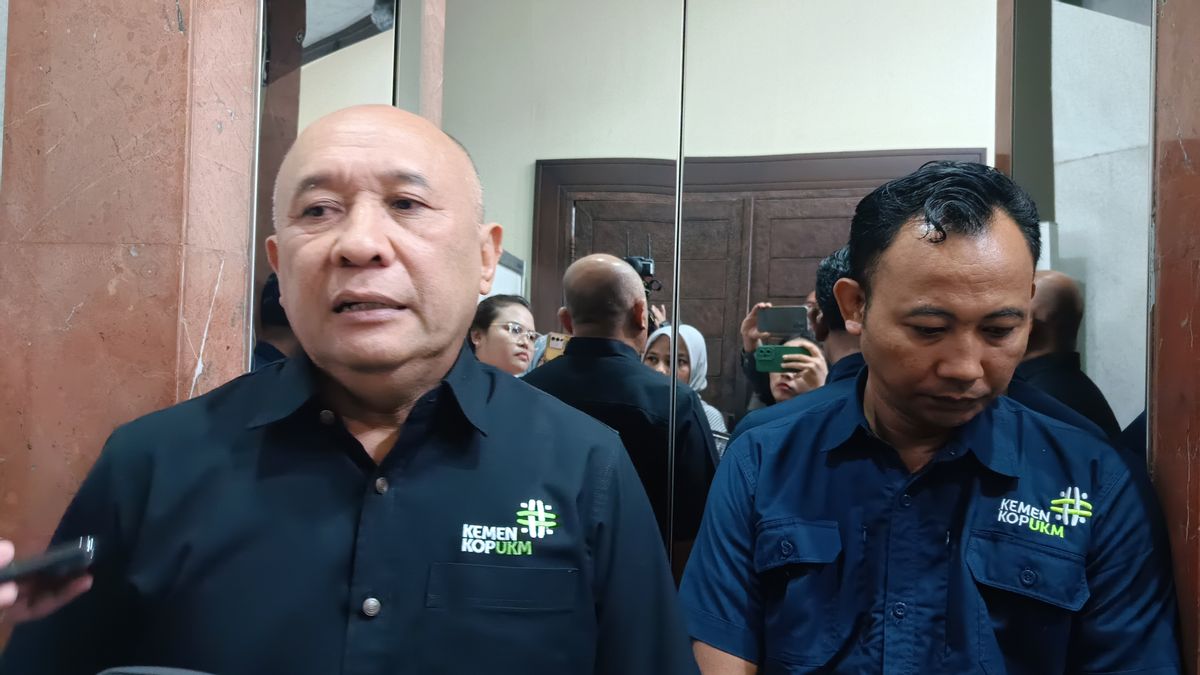Regarding The Obligation Of The October 2024 Halal Certificate, Minister Teten Asks For Two Things
JAKARTA - Minister of Cooperatives and SMEs (Menkop UKM) Teten Masduki opened his voice regarding policies that require MSME actors in Indonesia to have halal certification starting October 18, 2024.
Teten asked for the policy to be postponed. The reason is, he predicts that all MSMEs cannot have halal certification in a period of only about 7 months left.
"We predict that it is impossible for MSME actors (to obtain halal certification). So, relaxation is needed, such as postponing their obligations to have halal certification. Because if they don't, they will be involved in legal problems," Teten told reporters when met after the Forwakop discussion regarding the role of MSMEs in Downstreaming the Aquaculture and Agriculture Sector, Friday, March 8.
He suggested that the Ministry of Religion's Halal Product Guarantee Administration Agency (BPJPH Kemenag) also make it easier for MSMEs to obtain halal certification. For example, for culinary products whose raw materials are of course halal.
"For example, for certain products, it can be accelerated, such as culinary products whose raw materials are halal. Yes, it goes to the green lane and has been given certification. So, they have declared halal," he said.
"For example, selling cassava chips, meatballs. Maybe meatballs have meat or milk, there is still the possibility of pigs appearing, but if the others (MSMEs) just give them convenience," he continued.
According to Teten, the government as a policy maker should make it easier for MSMEs to sell their products, not even making it difficult with this policy.
"So, actually a lot can be made easier, yes, make it easier. MSMEs also don't have the costs, it's been made easier. The government too, yes, don't be arrogant, feel sorry for the people. This, right, is the goal of halal certification to provide protection for Muslims, now Muslims MSMEs are also made difficult," he said.
Even so, Teten did not yet know the ideal delay time for implementing the policy.
"Yes, I don't know yet. So I can't speculate, but it can be calculated. So, two things are given convenience and delay," he said.
The government through the Ministry of Religion (Kemenag) requires food and beverage traders, both MSMEs and street vendors (PKL) to have halal certification before October 18, 2024.
This provision is contained in Government Regulation Number 39 of 2021 concerning the Implementation of the Halal Product Guarantee Sector.
There are three groups of street vendors who are required to have a halal certificate from the Ministry of Religion's Halal Product Guarantee Agency (BPJPH Kemenag), namely:
1. Street vendors who sell food and beverage products.
2. Street vendors who sell raw materials, additional food and auxiliary materials for food and beverage products.
3. Street vendors who sell slaughter products and slaughter service providers.
The three MSME groups must have a halal label on October 17, 2024.
Traders who have not received a halal certificate exceeding the deadline have the potential to be sanctioned.
The English, Chinese, Japanese, Arabic, and French versions are automatically generated by the AI. So there may still be inaccuracies in translating, please always see Indonesian as our main language. (system supported by DigitalSiber.id)













